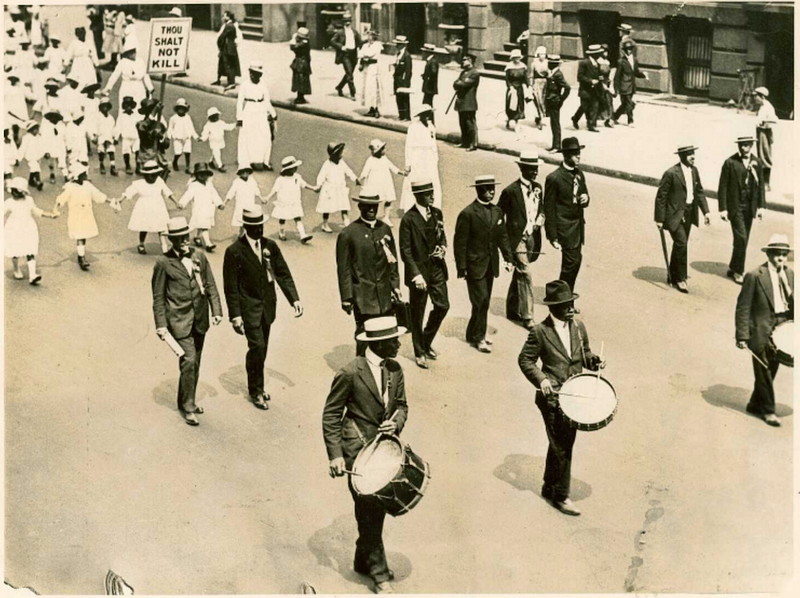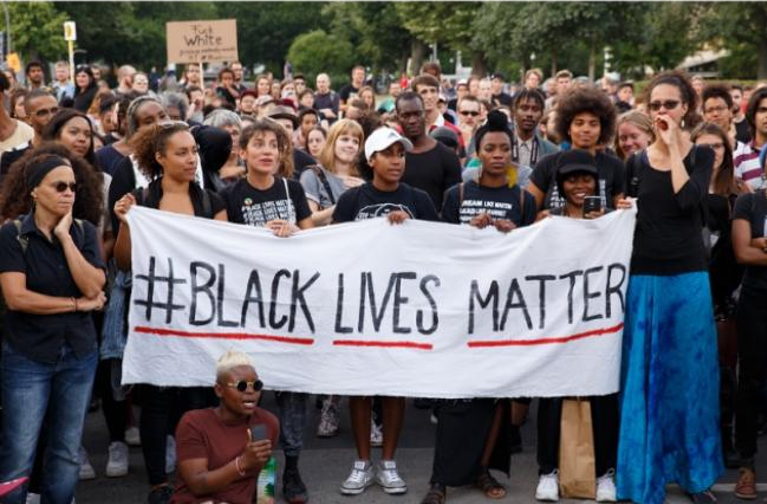I’m with you when you say that climate change is the most important issue facing humankind. I’ll even go so far as to say it’s the most important one ever. But, when I hear folks say—and I have heard it—that the environmental movement is the first in history to stare down an existential threat, I have to get off the train.
This game of what I call “existential exceptionalism” is a losing one. It is not only inaccurate, shortsighted, and arrogant—it’s dangerous. It serves only to divorce the environmental movement from a much bigger “arc of history.”
And for me, as a Black woman from the South, it’s downright insulting.
I’ll grant that we’ve never seen an existential threat to all of humankind before. It’s true that the planet itself has never become hostile to our collective existence. But history is littered with targeted—but no less deadly—existential threats for specific populations.
For 400 years and counting, the United States itself has been an existential threat for Black people. Let’s be clear that slavery didn’t end with freedom; it just morphed into a marginally more sophisticated, still deadly machine.
We need to talk about Jim Crow
I want you to know that Jim Crow—far too tame a name for its reality—was never about water fountains or bus seats or lunch counters. It wasn’t about “integration.”
Instead, I want you to imagine living in constant, crippling fear of humiliation, rape, torture, and murder—in a word: terrorism. Lynching was not some abstract threat or a one-time event. It was omnipresent. It hung in the air like humidity. Or the stench of burning flesh.
And it wasn’t a quick death. Maybe you were dragged by a speeding truckload of drunken, hysterical men practically frothing at the mouth for your blood. Maybe you were tarred and feathered. Maybe your unborn child was carved out of your womb while you were still alive. Maybe after you were beaten within an inch of your life, you were castrated and hanged in front of a frenzied, bloodthirsty mob, a sea of faces illuminated in the night only by their whiteness. Maybe your fingers and toes were severed and passed out to the children. As souvenirs. Maybe there’s a postcard with you on it.
Imagine living under a calculated, meticulous system dedicated to and dependent on your oppression and being surrounded by that system’s hysterical, brainwashed guardians. Now imagine your children growing up under that system, watching your daughter and the “ominous clouds of inferiority beginning to form in her little mental sky,” as Martin Luther King Jr. described.
How’s that for existential?
The sickness unto death
I want you to understand how overwhelming, how insurmountable it must have felt. I want you to understand that there was no end in sight. It felt futile for them too. Then, as now, there were calls to slow down. To settle for incremental remedies for an untenable situation.
They, too, trembled for every baby born into that world.
Sound familiar?

The 1917 Silent Parade in New York City was organized on the heels of the St. Louis race riots that left at least 200 people dead and about 6,000 homeless. Photo: Underwood and Underwood via Wikimedia Commons
Read the survivor stories from the St. Louis race riots and you’ll see some striking similarities with the survivor stories from Camp Fire. (Spoiler: Both include burning buildings and harrowing waterborne escapes.)
You don’t fight something like that because you think you will win. You fight it because you have to. Because surrendering dooms so much more than yourself, but everything that comes after you. Acquiescence, in this case, is what James Baldwin called “the sickness unto death.”
Now you understand what Fannie Lou Hamer meant when she said, “What was the point of being scared? The only thing they could do was kill me, and it kinda seemed like they’d been trying to do that a little bit at a time since I could remember.”
What, now, do you have to lose? What else can you be but brave?
History is present
“History, as nearly no one seems to know, is not merely something to be read. And it does not refer principally to the past,” Baldwin also wrote. “On the contrary, the great force of history comes from the fact that we carry it within us, are unconsciously controlled by it in many ways, and history is literally present in everything we do.”
I want you to know that the people who survived all this, the people who fought, are not far away from me. They are my grandaddy, my grandmama, Aunt Juanita, Uncle Biddy, Aunt Maude, Uncle Tweet, Aunt Jewel, Uncle Brother, Papa Dee, Mama Ora. My mama, Aunt Jackie, Uncle June, Aunt Joan, Uncle Harold, Aunt Anne. They are not my “ancestors”—they raised me. Many of them are still very much alive. They taught me so much, and they have so much to teach you.
So the next time you want to “educate” communities of color about climate change, remember that they have even more to teach you about building movements, about courage, about survival.
Nothing scares me more than climate change, but I made up my mind to face it head-on because of my debt to future generations and to previous generations.
So much of this story is mine, but this history belongs to all of us. And I want you to know it too. You can’t afford not to.

Black folks have built some of the most powerful movements in U.S. history. And we have a whole lot to teach you about building an inclusive movement. Photo: Montecruz Fotovia Flickr





